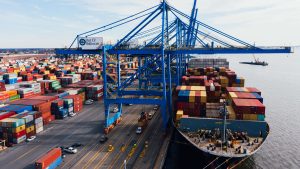
Singapore has consistently ranked as one of the most business-friendly cities, with a strong focus on supporting the growth of small and medium-sized enterprises (SMEs) through various financial incentives.
Particularly notable is the Market Readiness Assistance (MRA) Grant, which was introduced to help SMEs reinforce their brand presence, explore new markets, and better equip themselves for global competition.
- Access to Funding
The MRA grant provides funding support for eligible activities that help local businesses build their international profile. This includes:
- Co-funding overseas market set-up costs. SMEs can receive up to 70% of qualified costs, which can significantly reduce financial barriers when setting up overseas operations.
- Support for marketing and promotion activities. Eligible SMEs can receive funding for branding and marketing efforts, which are crucial for market entry and brand establishment.
- Assistance for product certification. With support towards certification costs, businesses can ensure their products meet international standards and regulations, removing a significant hurdle to overseas sales.
This access to funding not only eases cash flow for SMEs but also empowers them to take the necessary steps to venture into new territories.
2. Market Expansion Assistance
Entering new markets can be a daunting task, particularly for smaller enterprises. The MRA Grant facilitates this expansion through:
- Market entry evaluation. SMEs can receive financial aid for market assessment studies, helping them gain valuable insights into target markets.
- Participation in overseas business missions. The grant supports SMEs attending business missions, trade fairs, and networking events, fostering connections crucial for market entry.
- Set-up of overseas offices. Funding for office set-up costs overseas reduces the financial risk of market expansion, encouraging more SMEs to take this significant step.
Providing financial support in crucial areas of market assessment and initial setup helps SMEs in Singapore pursue global business opportunities.
3. Capability Development
To thrive in a competitive global landscape, SMEs need cutting-edge skills. The MRA Grant addresses this through:
- Training in internationalisation concepts and techniques. Eligible companies receive funding for staff training, providing them with essential skills for international business development.
- Workshops on branding and digital marketing. Expert-led sessions, part-funded by the grant, help SMEs strategise their brand and marketing efforts for global audiences.
- Consultancy services for international market entry. Partially funded consultancy services guide SMEs through the intricacies of entering new markets, from regulatory compliance to market trends.
Supporting capability development ensures that Singapore SMEs are equipped with the necessary knowledge and expertise to grow their business outside their home country.
4. Technology Adoption
The MRA grant also encourages SMEs to adopt technology that fuels growth in a world where innovation drives competitiveness. The grant aids in:
- Adoption of technology solutions for process improvement. SMEs can receive up to 70% co-funding for the adoption of technology to enhance efficiency and productivity.
- Participation in international-related trade fairs and exhibitions focused on technology. This exposure allows SMEs to explore and incorporate cutting-edge technologies into their operations.
- Costs related to establishing or expanding digital marketing platforms. Financial assistance towards digital marketing infrastructure helps SMEs extend their digital reach.
This commitment to technology adoption ensures that Singaporean SMEs remain innovative and agile in the global market.
5. Research and Development Support
The MRA Grant recognises the importance of R&D in driving SME growth. It supports:
- Costs for the development of new product designs and packaging for international markets. Funding for design work and packaging helps SMEs present products in ways that resonate with international consumers.
- Participation in overseas trade fairs with an R&D focus. This support brings SMEs to the forefront of innovation and allows them to showcase their R&D efforts.
- Consultancy on developing new products and internationalisation. Partial financing for expert advice in R&D and internationalisation helps SMEs steer their product development in the right direction.
Alleviating some of the financial burden associated with R&D fuels SMEs in their quest to innovate and develop products with international appeal.
6. Networking and Business Matching
The MRA Grant plays a significant role in connecting Singapore SMEs to international opportunities. It does so through:
- Facilitation of business matching. SMEs are supported in finding potential overseas business partners, distributors, and customers through facilitated matchmaking initiatives.
- Connection to international trading platforms and networks. Funding for membership fees or related activities in international business networks opens doors for SMEs to collaborate on a global scale.
- In-market support for business set-up. Tailored assistance in setting up operations in new markets offers SMEs on-the-ground support as they embark on their international journey.
Fostering these connections, the MRA Grant enhances the potential for SMEs to create meaningful partnerships that support their international expansion.
Case Studies
To put these benefits into perspective, let’s look at two SMEs that have leveraged the MRA Grant to grow internationally:
Company A: Singaporean Food Manufacturer
- A Singaporean food manufacturing company sought to expand into Middle Eastern markets.
- The MRA Grant funded market assessment studies, participation in global food exhibitions, and branding consultancy, facilitating successful market entry and distribution partnerships in the Middle East.
Company B: Digital Solutions Provider
- A digital solutions provider wished to tap into the European e-commerce space.
- The MRA Grant supported the company’s participation in technology-focused trade fairs, sponsored digital marketing initiatives, and facilitated connections with European e-commerce platforms, leading to lucrative business contracts.
These case studies illustrate how the MRA Grant has directly contributed to the success and growth of SMEs in Singapore.
Conclusion
The MRA Grant stands as a significant pillar in Singapore’s strategy to support SMEs. Its multifaceted approach to funding, capability building, R&D support, and market access is designed to foster a conducive environment for small businesses to thrive internationally.
As seen from these focal points, the grant offers tangible benefits that can pave the way for long-term success in the global arena. SMEs in Singapore are encouraged to explore and take advantage of this robust support system, which can elevate their presence in the global marketplace.






